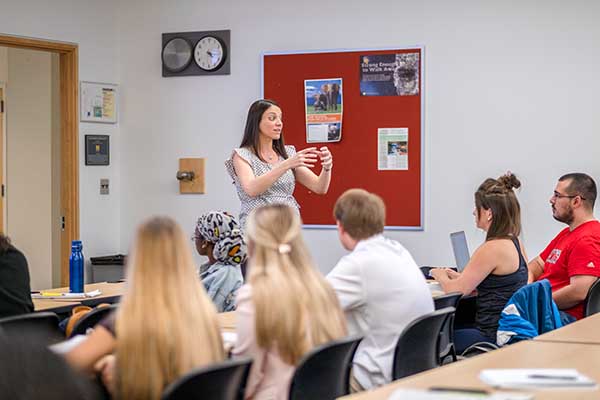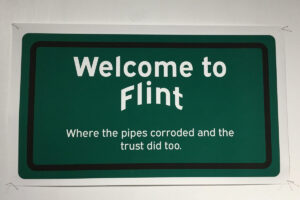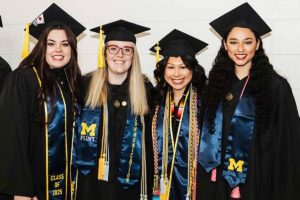CAS Student Ambassador April is a Communication Studies major exploring other fields of study offered by the College of Arts & Sciences. For this article, she sat down with Dr. Kimberly Bender to learn more about Criminal Justice.
This is Dr. Kimberly Bender’s fifth year as an assistant professor with UM-Flint’s Criminal Justice program. Her research focuses on corrections–individuals in jail or prison, or those out on parole.
There are three main areas of emphasis for criminal justice students at UM-Flint:
- Law Enforcement
- Courts
- Corrections
After taking the required introductory courses, Dr. Bender explains that students can take additional elective courses relevant to their particular interest. For example, there are class offerings that offer a critical examination of gender, racial, and class implications of criminal laws and criminal justice practices (CRJ 433: Social Inequality and Crime).
After speaking with Dr. Bender, a great intro course to learn more about criminal justice (and the program itself) is CRJ 185: Introduction to the Criminal Justice System. This course gives you a great overview of the program and will help to debunk the myths surrounding crime, courts, and more. Any students interested in pursuing the program further can work towards a minor or a major in criminal justice!
Preparing for the Future
There are many different career options for students studying criminal justice. Some students take their education further by pursuing law school after gaining a valuable understanding of how the system works. Other students start work following graduation in careers working with juvenile facilities, a variety of city departments ( like Flint’s Department of Health and Human Services), or law enforcement positions such as a police or parole officer. With three different focuses, students can select coursework that best prepares them for future careers.
What I found most interesting about the criminal justice program was the real world experiences students can gain while earning their degrees. In Professor Bender’s corrections course, students take a trip to a prison to gain additional insights on what they learn in class. In a course focused on how minors interact with the criminal justice system, students get a similar experience by stepping into a juvenile detention facility. These out of class experiences bring a new level of understanding to what students learn in theory. There is also an optional internship course, allowing students to gain further real-world experiences and to build their resumes while earning course credit.





